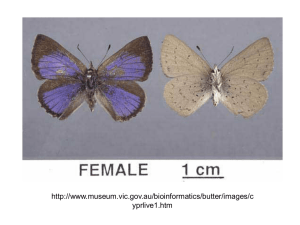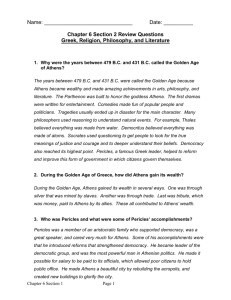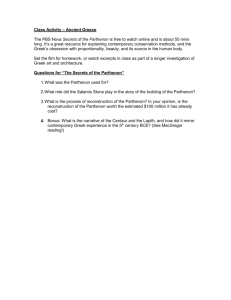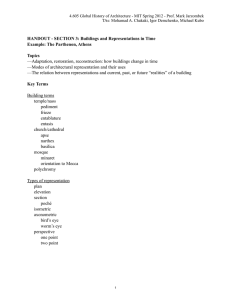Where was the center of the Golden Age of Greece?
advertisement
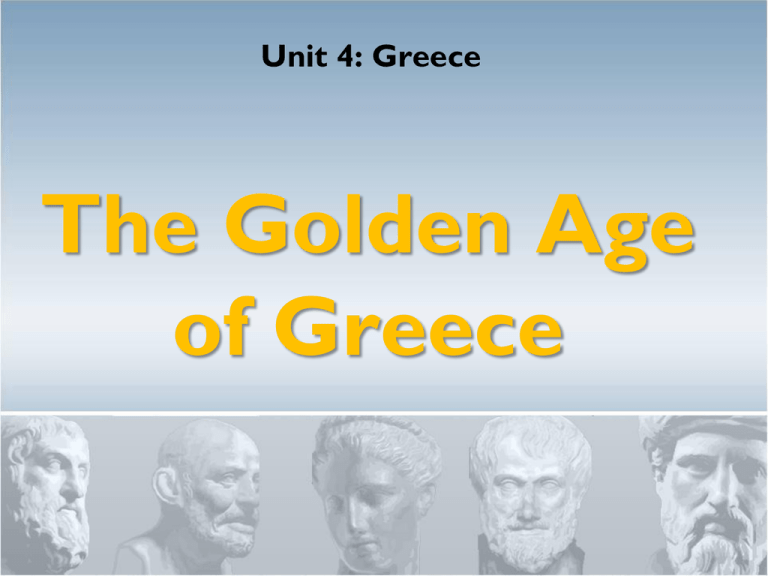
Unit 4: Greece The Golden Age of Greece Golden Age: “…he means by the golden men, not men literally made of gold, but good and noble.” - Socrates What is a “Golden Age”? • A period of great peace, prosperity, and happiness. • The peak of classic culture. When did the Golden Age of Greece occur? Between the Persian War and the Peloponnesian War! Where was the center of the Golden Age of Greece? Athens Who was the leader during the Golden Age? Pericles • Leader of Athens What did Pericles do? • Extended democracy • Rebuilt Athens after the destruction in the Persian Wars • Ex: Parthenon What’s so important about the Parthenon? • Temple to Athena • Showed off the power of Athens • Phidias’ statue of Athena I’m a replica in Nashville, TN Columns on the Parthenon Doric Columns! What other types of columns are there? Types of Columns: The Parthenon Today Inside the Parthenon: The sculptures of Phidias Frieze following accepted rules of behavior, morally right and good Is it ethical for the British Museum to keep the Parthenon sculptures? Contributions of the Greeks • • • • • • • Philosophers Playwrights Poets Sculptors Historians Mathematicians Scientists “Lover of wisdom” A person who seeks to understand Truth and the meaning of life Contributions of the Greeks Wow! This is a lot of people! No worries, this “cheat sheet” is downloadable on our website. 1) Socrates • Philosopher • First of the great Greek Philosophers. He is considered by many to be the founder of Western philosophy. • “Know thyself.” • “The only true wisdom is in knowing you know nothing.” • “The unexamined life is not worth living.” 2) Plato • Philosopher • Student of Socrates. He wrote many dialogues using Socrates as a major character. He also founded the Academy in Athens. 3) Aristotle • Philosopher • Student of Plato. Aristotle was a philosopher and scientist. He was interested in the physical world. He was also teacher to Alexander the Great. 4) Aeschylus • Playwright • A Greek playwright, he is considered the father of the tragedy. 5) Sophocles • Playwright • Sophocles was probably the most popular playwright during Greek times. He won many writing competitions and is thought to have written over 100 plays. 6) Homer • Poet • Homer was the most famous of the Greek epic poets. He wrote the epic poems the Iliad and the Odyssey. 7) Phidias • Sculptor • A sculptor and architect. Designed the Parthenon and made several of the religious statues inside it. 8) Herodotus • Historian • A historian who chronicled the Persian Wars, Herodotus is often called the Father of History. 9) Thucydides • Historian • A great Greek historian who was known for the exact science of his research, he wrote about the war between Athens and Sparta called the Peloponnesian War. 10) Archimedes • Mathematician • He is considered one of the greatest mathematicians in history. He made many discoveries both in math and physics including many inventions. 11) Euclid • Mathematician • The Father of Geometry, Euclid wrote a book called Elements, likely the most famous mathematical textbook in history. 12) Hippocrates • Scientist • A scientist of medicine, Hippocrates is called the Father of Western Medicine. Doctors still take the Hippocratic Oath today. 13) Pythagoras • Pythagoras • A scientist and philosopher, he created the Pythagorean Theorem still used today in much of geometry.
